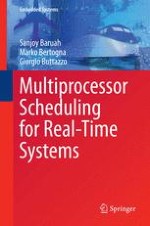2015 | OriginalPaper | Buchkapitel
14. A Strategy for Global Schedulability Analysis
verfasst von : Sanjoy Baruah, Marko Bertogna, Giorgio Buttazzo
Erschienen in: Multiprocessor Scheduling for Real-Time Systems
Aktivieren Sie unsere intelligente Suche, um passende Fachinhalte oder Patente zu finden.
Wählen Sie Textabschnitte aus um mit Künstlicher Intelligenz passenden Patente zu finden. powered by
Markieren Sie Textabschnitte, um KI-gestützt weitere passende Inhalte zu finden. powered by
